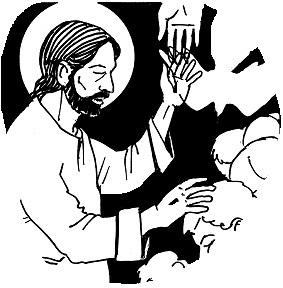
“These works that I perform testify on my behalf that the Father has sent me” (John 5:36).
Today’s Gospel gives us a window into the ancient tensions between the early followers of Jesus and the Jewish establishment following his death and the church’s claims that he had risen. The fourth Gospel, probably composed toward the end of the first century, summarizes the break between the church and its Jewish origins after the destruction of Jerusalem and the temple.
The messianic and then divine claims of the Jesus movement were rejected by the surviving rabbis who sought to preserve Judaism in the diaspora. The divergence of Christian belief and practice from Jewish norms was deepened by the church’s welcome of Gentile converts without circumcision or commitment to full Jewish legal and dietary requirements.
The speeches of Jesus, like the one in today’s fourth Gospel, reflect ancient polemics between the “Jews” and the evangelist, who is intent on showing that Jesus was everything he claimed to be: He is the Son of God, sent by God to save the world. He is the Word of God that fulfills Moses and the Prophets. He is the light that came into the darkness and was rejected. His many signs prove that he came from God and was doing God’s work in the world.
The polemics between the early church and its Jewish origins evolved in history with tragic consequences addressed in the addendum to today’s column. Readers are urged to read the brief statement and follow the link to Pope Francis’ comments on the need for continued dialogue between the church and Judaism.
We do not have to be scripture scholars to grasp the testimony of the fourth Gospel. The author, sometimes identified as the “Beloved Disciple,” is intent on sharing a living encounter with the crucified and risen Jesus available to all believers. Jesus is now present in the world and within the church. Christians are called to know him face to face and to be transformed by him. Our human nature is meant to be perfected by God’s grace and guided by the Holy Spirit. To be “saved” is to be part of the new creation in Christ, which begins with our baptism into his body, the church, whose members are destined for divine life.
Lent is our journey toward deeper faith and commitment to this process of transformation. The highlight of the church year is the baptism ceremony at the Holy Saturday celebration of Easter. New believers join us in an inexhaustible mystery of redemptive life, and each time we say yes and add one more day to our discipleship, we are all taking another step closer to God.
--------------------------
During Lent and Holy Week, many of the scripture readings will reflect the political and religious divisions and uncertainty that roiled Judaism and the earliest decades of Christianity. Our reflections will take into consideration that the texts contain language that historically served to foster ugly stereotypes and fuel ancient hostility toward Jews. The Catholic Church took a huge step toward correcting those perceptions in the Vatican II document Nostra Aetate. More than 50 years after the promulgation of that document, the church is still wrestling with how to interpret our sacred texts in light of new research and understanding. A good point of reference is a 2019 talk by Pope Francis to the Pontifical Biblical Institute as it addressed the topic, “Jesus and the Pharisees: An Interdisciplinary Reappraisal.” He spoke of the need to “find ways to overcome ancient prejudices.”





